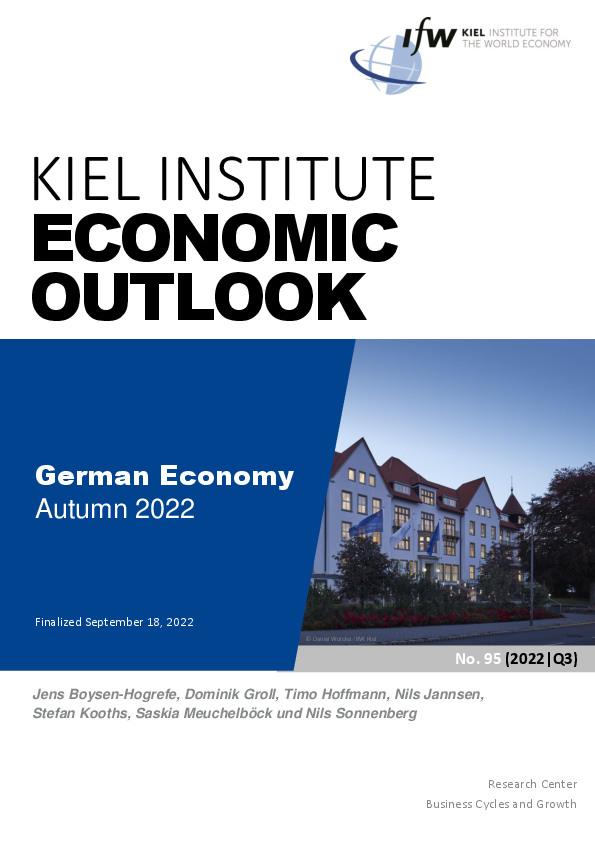Economic Outlook
German Economy Autumn 2022: Consumption-driven recession
Authors
Publication Date
Key Words
Related Topics
Business Cycle Germany
Fiscal Policy & National Budgets
Labor Market
The German economy is in a downward spiral. The recent price jumps for electricity and gas will reduce the purchasing power of private households and lead to a decline in private consumer spending. In addition, the slowing world economy will dampen not only exports but also investment activity. As a result, the German economy will slide into recession once again, at a time when it was just recovering from the pandemic-related crisis. In our summer forecast, we assumed that the recovery would prevail despite the burdens of the war in Ukraine and that GDP would rise strongly. Now we expect GDP to increase by only 1.4 percent in the current year (summer forecast: 2.1 per cent). In 2023, it is expected to decline by 0.7 percent (summer forecast: +3.3 percent). In 2024, when the impact of the negative factors fades out, GDP will increase by 1.7 percent. Provided that prices for electricity and gas remain high for a longer period of time - as markets currently expect - inflation is likely to rise from its record level of 8 percent in the current year to 8.7 percent in 2023, as market prices for electricity and gas reach consumer prices only with some delay. In 2024, when energy prices moderate somewhat, inflation is likely to settle down significantly. The recession will also leave its mark on the labour market. However, due to the shortage of skilled workers, the impact is likely to be comparatively moderate. The unemployment rate will rise from 5.3 percent this year to 5.6 percent in 2023. Despite considerable additional expenditures to cushion the high energy prices, the government's fiscal balance will probably hardly deteriorate, as the high upward pressure on prices leads to additional revenues. The ratio of gross debt to nominal GDP is even expected to decline from 68.7 percent in 2021 to 64.6 per cent in 2024, as nominal GDP will rise strongly due to the high price increases.










